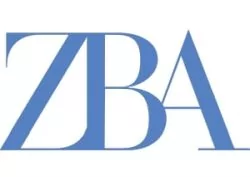Introduction
In the recent case of Toshiaki AIBA vs. Vipan Kumar Sharma and Anr.1, the Delhi High Court has fostered user confidence in India as a jurisdiction that enforces foreign bankruptcy / insolvency orders in order to preserve the assets of the bankrupt entity located in India.
Bank of Tokyo Mitsubishi UFJ. Limited (“Bank”) advanced credit facilities to a shipping company incorporated in Japan. One Vipan Kumar Sharma (“Guarantor”) personally guaranteed repayment of the loan advanced to the Japanese shipping company. The Japanese shipping company defaulted and the Bank called on the Guarantor to pay the outstanding amounts. When the Guarantor failed to repay the debt, the Bank initiated bankruptcy proceedings in Japan, which was defended by the Guarantor. The Japanese bankruptcy court declared the Guarantor bankrupt and appointed a Japanese bankruptcy trustee (akin to a resolution professional in India) to administer the Guarantor's assets.
On investigation, the Japanese administrator found that the Guarantor had in anticipation of the Japanese bankruptcy order, transferred to its brother, i.e., an individual resident in India, two immovable properties that it owned in India.
The Japanese administrator commenced proceedings in the Delhi High Court, interalia seeking a declaration that the purported transfer of assets in India by the Guarantor was fraudulent and void and also for an order recognising its right to administer the assets as part of the Japanese bankruptcy estate.
The Guarantor's application for rejection/striking out of the action by the Japanese administrator was considered and rejected by the Delhi High Court:
Execution of Judgement given by Court of a Non-reciprocating Country
The Guarantor objected to execution of the Japanese Bankruptcy order on the ground that Japan is not a reciprocating territory under section 44-A of the Code of Civil Procedure. And that the Japanese judgement could not be recognized or enforced directly in India. The Court rejected this argument by ruling that the administrator was not seeking to execute a monetary decree. It instead sought to administer the Guarantor's bankruptcy estate in India, which appeared to comprise of two immovable properties.
The Court held that execution of a judgement related to a case where a creditor seeks to enforce repayment of its debt from the judgement debtor. Whereas, administration was distinct and related to the management, preservation and/or sale of the Guarantor's assets in India. In other words, the Japanese administrator was seeking the assistance and cooperation of the Indian Courts in managing the estate of the Guarantor in India, which was wholly distinct from execution proceedings.
Analysis
Even though the distinction between execution and administration is blurred, the judgement can be rationalized on the basis that the Japanese administrator filed a suit on the basis of the foreign judgement and had not sought to directly execute the Japanese Bankruptcy court order under Section 44 A of the Code of Civil Procedure. The Guarantor's argument resisting enforcement of the Japanese judgement on the ground that Japan is not a non-reciprocating territory, was misconceived.
Importance of Extending Co-operation to Foreign Court's Bankruptcy Order
More significantly, the Court highlighted the importance of recognizing and co-operating with foreign bankruptcy courts in preserving the assets belonging to the bankruptcy estate that may be located in India. The Court emphasized that in an increasingly globalized world, foreign creditors should be treated on par with domestic creditors.
No Bar Under the Insolvency and Bankruptcy Code
The Court further held that there was no bar under the Indian Insolvency and Bankruptcy Code 2016 (“IBC”) preventing administration of the bankruptcy estate when ordered by a foreign court.
Prima Facie View that the Transfer of Assets were Fraudulent
The Court also noted that the transfer of assets by the Guarantor to his brother was a sham/ colorable transaction, as it was intended to frustrate the bankruptcy process and avoid attachment of properties belonging to the bankruptcy estate. The Court found these transactions suspect and ruled that the properties in question should be included in the bankruptcy estate.
Conclusion
The judgement extends judicial protection to foreign creditors in circumstances where a debtor adjudicated as insolvent by a foreign court, has substantial assets in India.
A foreign creditor / administrator unable to trace the assets of the insolvent debtor, may now be able to seek the Indian Court's assistance in directing disclosure of assets and bank accounts of its debtor, as a precursor to their attachment.
The Court also helpfully observed that the concept of ‘avoidance of beneficial transactions' applicable under the local insolvency law i.e., IBC, to set aside fraudulent transactions by debtors to avoid attachment of assets in the bankruptcy estate, would equally be applicable to a cross-border insolvency.
The approach and intent of the Delhi High Court is to ensure that India remains a creditor friendly jurisdiction, which extends full co-operation in cases of cross-border insolvency and where foreign bankruptcy trusties / administrators can attach the assets of debt dodgers.
Footnote
1. Toshiaki AIBA vs. Vipan Kumar Sharma and Anr., 2022 SCC OnLine Del. 1260.
The above is a generic analysis and should not be regarded as a substitute for specific advice based on the facts of a client's objectives and specific commercial agreements reached. Please do reach out to us at mail@zba.co.in for any queries.



